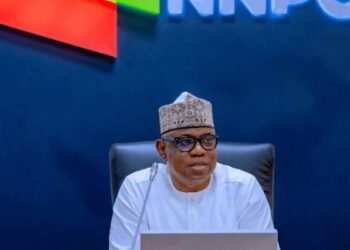The vote was the closest in Angola’s history since independence. The result extends the MPLA party’s decades long rule and hands Lourenco a second term in office.
Angolan President Joao Lourenco won a second term in office Monday after he was declared the winner of last week’s closely fought election.
The official results from the National Electoral Commission showed the People’s Movement for the Liberation of Angola, known by its Portuguese initials MPLA, had received 51.17% of the vote. The opposition National Union for the Total Independence of Angola, known by its Portuguese initials, UNITA, only received 43.95% in the final tally.
At a press conference, the head of the commission, Manuel Pereira da Silva, said the electoral body “proclaims Joao Manuel Goncalves Lourenco, president of the republic.”
What is significant about this election?
The vote was the closest in Angola’s history since independence. In the past, elections were contested affairs with the count taking weeks.
Both political parties have a deep history as battlefield foes during a bitter 27-year-long civil war. That conflict ended in 2002.
Traditionally, the MPLA has held control over the electoral process and state media, with opposition and civil society raising fears over the security of the ballot box.
The MPLA was traditionally aligned with the Soviet Union and saw itself as a liberation movement. It has ruled Angola since independence from Portugal in 1975.
Lourenco is a former general educated in the Soviet Union. 68 now, he won his first term in 2017 with 61% of the vote.
What is the reaction to the results?
Even before the ballots were counted, opposition leader Adalberto Costa Junior last week asked for international assistance to review the vote count.
In more recent elections, the MPLA has seen its support steadily eroded.
The late president, Jose Eduardo dos Santos, who was put to rest Sunday on what would have been his 80th birthday, was also from the MPLA and spent 38 years in charge. In that time, his family behaved as kleptocrats while Angola became one of Africa’s largest oil producers.
Half of the population in Angola under 25 are jobless, and 60% of Angola’s population is under 25.






























































